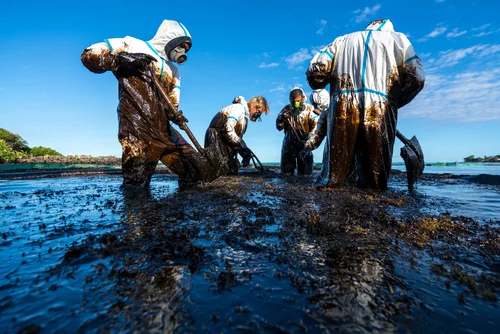What is whistleblowing in relation to the martime industry?
Safeguarding our oceans is a big concern for our future.
Due to the fact that illegally polluting ships operate in international waters far from
official oversight, whistleblowers are an essential part of the detection and prevention
of such pollution.
Maritime whistleblowing is becoming more important than ever before in
keeping our waterways safe. Whistle blowers are fully protected under policies like the
G2 Ocean whistle blower policy, ensuring that you do not become the next maritime
scandal.
When you have reasonable proof of illegal action, maritime whistleblowing is
when you choose to expose private information in good faith to a public authority,
regulatory board, or the police..
Reporting your employer for contaminating the waters or failing to follow
proper trash disposal procedures is an excellent example of marine whistleblowing.
